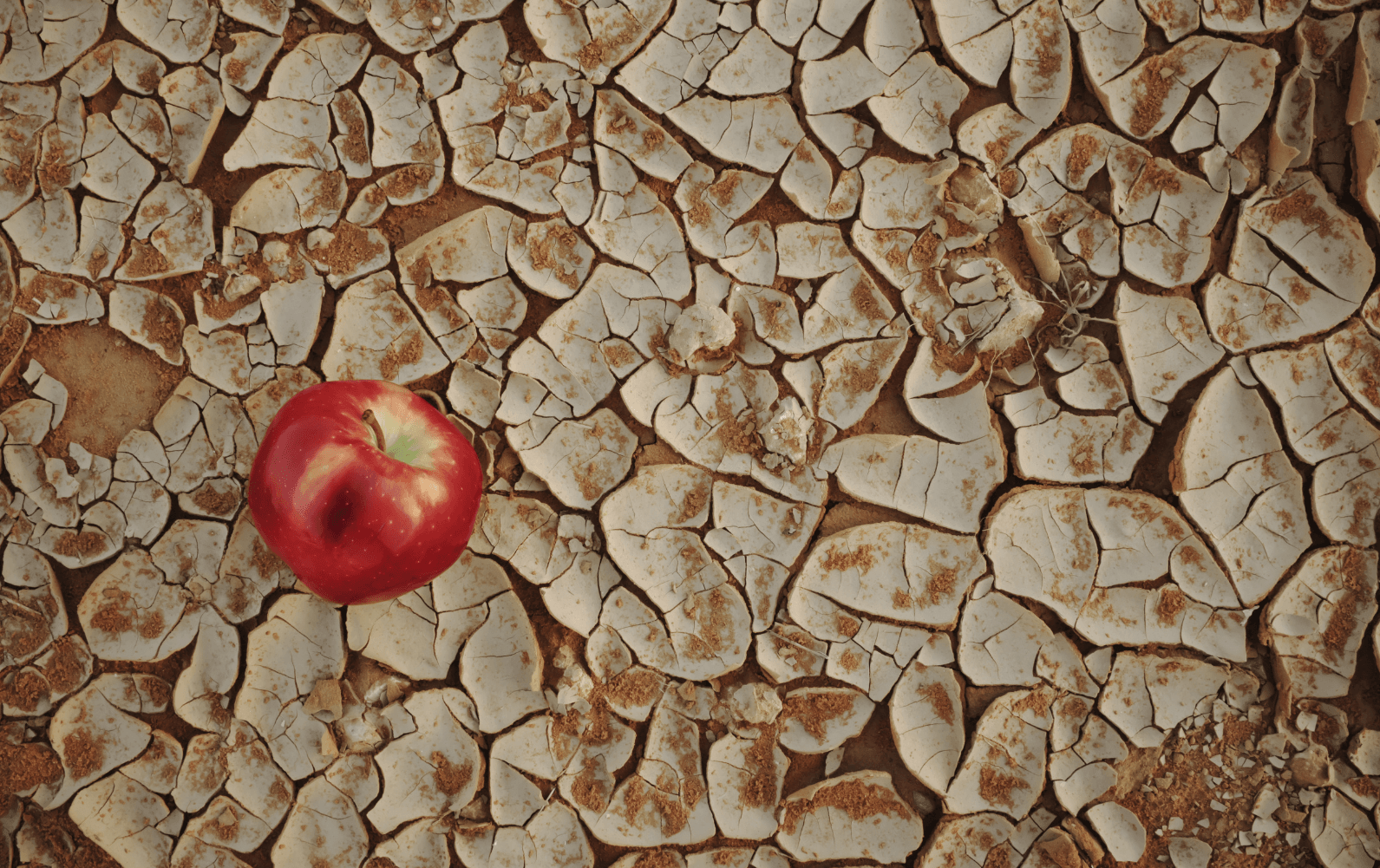As hard as we try, we cannot permanently avert our eyes from global food insecurity, which is not matter of lifestyle, or values, or identity. It is a binary of life or death, with little in between. The latest United Nations report from 2020, indicated that in the midst of a pandemic, more than 2.3 billion people (or 30 percent of the world’s population) lacked year-round access to adequate food, and it was even worse for women than for men. For every 10 food-insecure men, there were 11 food-insecure women in 2020. And with this data comes a question: are the hundreds of millions of children who suffer from malnutrition fated to have their natural physical and emotional development stunted from lack of food or healthy diets?
When you ask people who are somewhat conversant with the central themes of the Book of Genesis, they often omit one of the key actors at the very heart of the narrative, which is that of famine, a lack which drives practically everything in the text. The patriarchs and matriarchs are constantly migrating in search of food to survive, from Abraham—“Abram descended to Egypt because the famine was severe in the land of Canaan” [Genesis 12:10]—to his great grandson Joseph, who interprets the Pharaoh’s dreams about thin and fat cows:
“Seven years of plenty will come throughout all the land of Egypt; but after them seven years of famine will arise, and all the plenty will be forgotten in the land of Egypt; and the famine will deplete the land. So the plenty will not be known in the land because of the famine following, for it will be very severe. [Genesis 41].
Abraham’s children and grandchildren are regularly “on the move,” foraging for food, trying to fend for their families. The Torah depicts a scenario that is all too common in our time, the disruption and even destruction of family life and continuity through forced migration caused by drought. The Barilla Center for Food and Nutrition, based in Italy, reported that in sub-Saharan Africa, [there is] “a vicious circle involving nutrition and migration…the cycle contributes to pushing the younger members of the population to leave their lands of origin in search of a future that will allow them to break it once and for all. They do this to guarantee the nutrition and therefore the survival, within a family context that is often quite extended.”
Joseph’s interpretation of the Pharaoh’s dream is cruelly accurate; the drought is so severe that the Egyptian populace are forced to sell everything they have—their homes; their fields; their very bodies—just to be able to buy grain.
The power of this Biblical story derives in part from what must have seemed unimaginable – that the river Nile, with its huge flow of water to irrigate the crops, would suddenly dry up to the point where everything and everyone is dying – livestock; produce; people. If you earn a reasonable income, you are inundated by food, and it is difficult to fathom that much of the rest of the world cannot eat. In North America and Europe, with supermarkets and specialty stores overflowing with an abundance of food and culinary choices, we are nurtured beyond belief.
But next time you are in Whole Foods, or somewhere comparable, close your eyes and think of a withered, parched land where nothing grows and there is dust and utter desolation. It is a picture hard to reconcile with what you see when you open your eyes again. As Elie Weisel, the Holocaust survivor and world famous novelist, once noted, “Hunger is isolating; it may not and cannot be experienced vicariously. He who never felt hunger can never know its real effects, both tangible and intangible. Hunger defies imagination.”
Judaism has always assumed, from the very earliest origins of the faith, that there will be hungry people, and that they will need sustenance. “When you reap the harvest of your land, do not wholly reap the corner of your field” states Leviticus 19. “Leave it for the poor and for the stranger.” And perhaps the most well-known single event in all of Judaism, the Passover Seder, virtually begins with this exhortation in the Haggadah: “Let all who are hungry come and eat. Let all who are in need come and celebrate/eat the Pesach (offering).”
To feed hungry mouths, we must sustain the earth from which food and thus life emerges. One of the central questions of life today is will our planet be livable by the time our children or grandchildren become adults. Let us learn from the most natural process of all. In the first 4 to 6 weeks after a baby is born, the mother’s body is still learning how much milk to make. If the body produces too much, this can sometimes lead a flow of milk to the breasts that wants to come out too quickly.
Known as “overactive letdown,” this can, at times, lead to the baby becoming fussy and unsettled, and even colicky. Just as with the process of breastfeeding, in which the body learns how much food is healthy to release at any one time, so too we as human beings have to learn how not to extract too much from the earth at one time, in order to foster the long term health of our earth mother and we, her children.
The Torah narrates Joseph’s foresight as he creates an ancient template of food storage and long term food management: “During the seven years of abundance the land produced plentifully. Joseph collected all the food produced in those seven years of abundance in Egypt and stored it in the cities. In each city he put the food grown in the fields surrounding it. Joseph stored up huge quantities of grain…The seven years of abundance in Egypt came to an end, and the seven years of famine began, just as Joseph had said. There was famine in all the other lands, but in the whole land of Egypt there was food.”
Without protecting the fragility of the ecosystem, we will be unable to leave a viable legacy to our descendants. This is not environmentalism or any other “ism”. It is stark, cold reality. May we blessed to see a world where everyone is nurtured physically and emotionally, from babies to the Planet Earth.


0 Comments